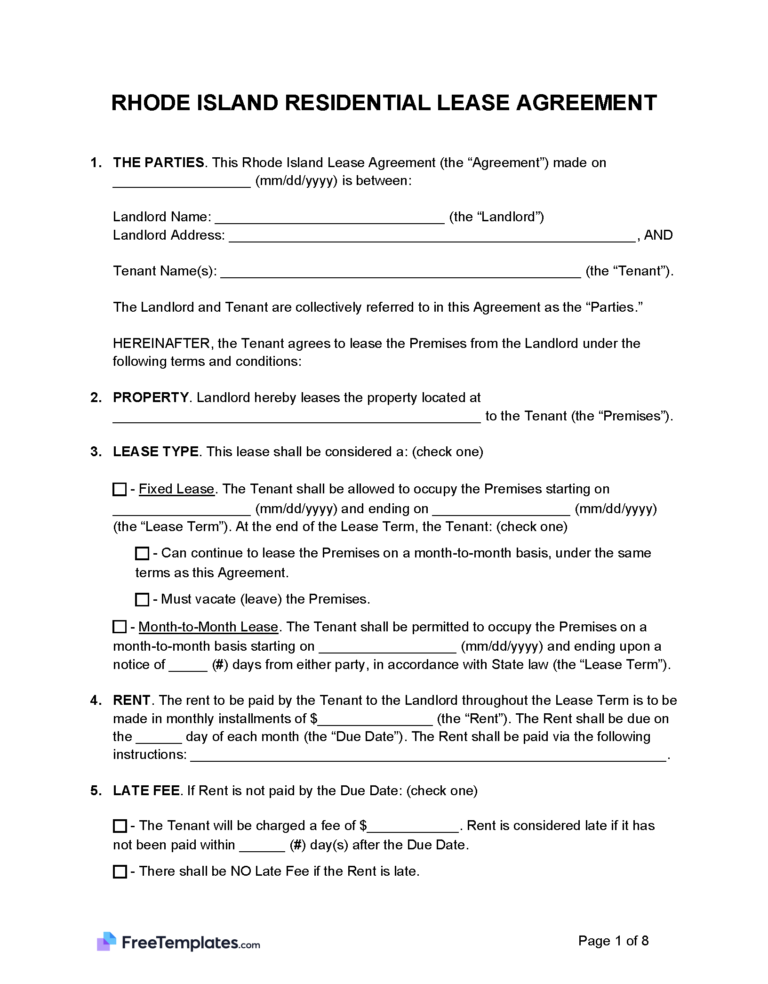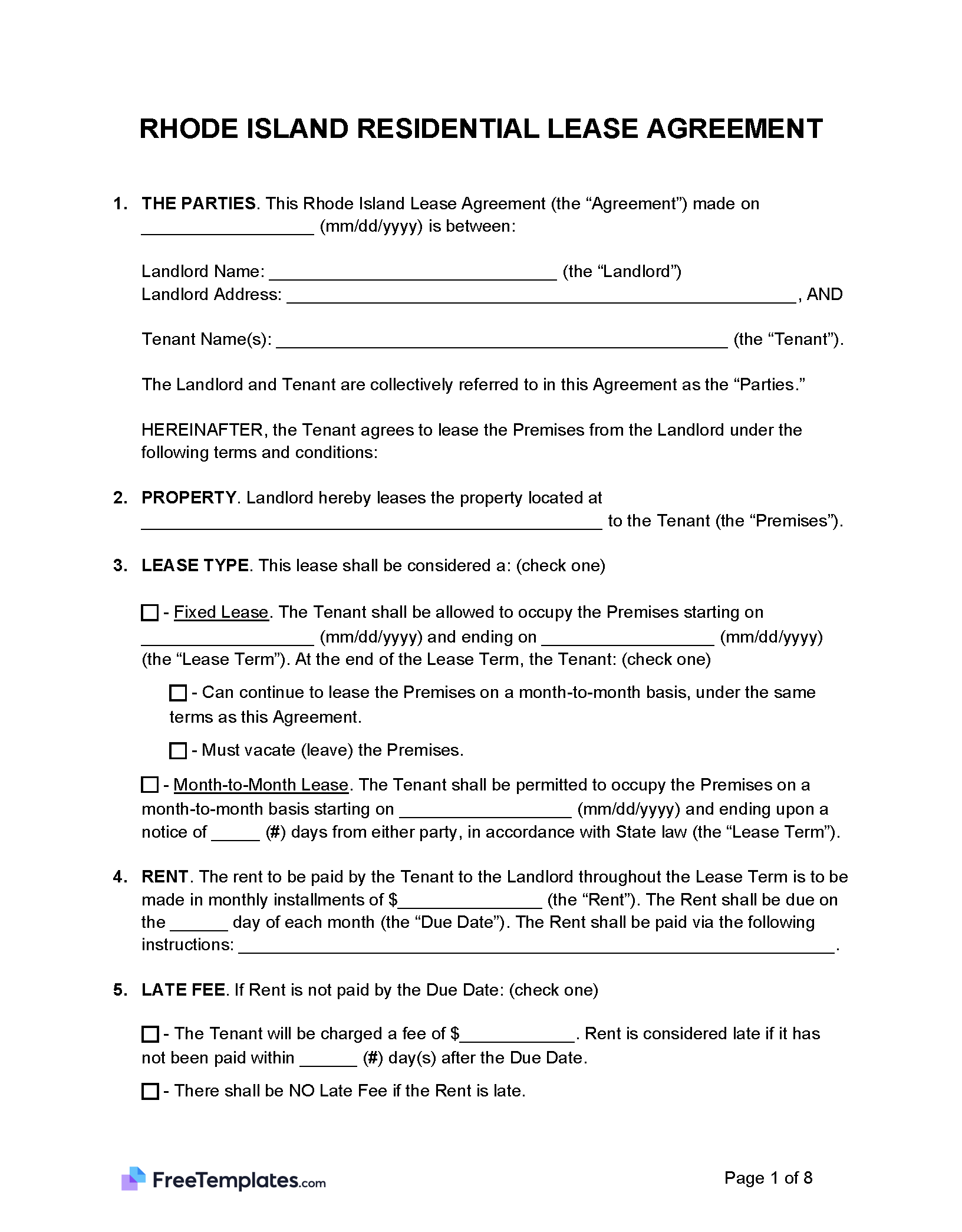By Type (6)
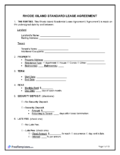 Standard Lease Agreement – A typical lease in which an individual rents a space from a landlord for a specific time and for a certain price. Standard Lease Agreement – A typical lease in which an individual rents a space from a landlord for a specific time and for a certain price.
|
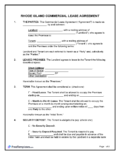 Commercial Lease Agreement – A lease between a business and a landlord for the use of retail, industrial, or office space for a set time period. Commercial Lease Agreement – A lease between a business and a landlord for the use of retail, industrial, or office space for a set time period.
|
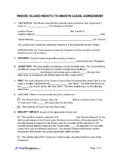 Month-to-Month Lease Agreement – A lease in which either the renter or tenant can terminate the agreement with 30 days’ notice from either party. Month-to-Month Lease Agreement – A lease in which either the renter or tenant can terminate the agreement with 30 days’ notice from either party.
|
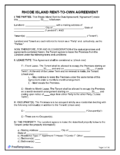 Rent-to-Own Agreement – Similar to a standard lease agreement, the tenant can purchase the property from the landlord. Rent-to-Own Agreement – Similar to a standard lease agreement, the tenant can purchase the property from the landlord.
|
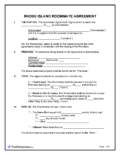 Roommate Agreement – If you have a shared space and want to outline the rules and responsibilities of leasing the same property. Roommate Agreement – If you have a shared space and want to outline the rules and responsibilities of leasing the same property.
|
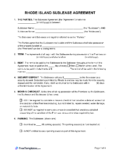 Sublease Agreement – Describes the lease of a property from a renter to another renter. Sublease Agreement – Describes the lease of a property from a renter to another renter.
|
Disclosures (3)
Lead-Based Paint Disclosure – A signed document by the landlord and tenant that covers the health risks of toxic lead paint for any rental property built before 1978. (EPA/HUD Fact Sheet)
Landlord’s Contact Details – The landlord and/or owner of the property’s name, address, and phone number must be available to all Rhode Island renters. (§ 34-18-20)
Code Violations – Any code housing violations on the rented property must be disclosed to the tenant before entering the lease agreement. (§ 34-18-22.1(b))
Security Deposit
Maximum Amount – The maximum a landlord may charge a tenant for the total security deposit must be no more than one month’s rent. (§ 34-18-19(a))
- Exception – If the rental property comes furnished with a value of more than $5000, an additional one-month security deposit may be charged. (§ 34-18-19(e))
Returning to Tenant – In Rhode Island, the landlord must return the security deposit to the tenant within 20 days of the end of the lease agreement. (§ 34-18-19(b))
Collecting Interest – There are no laws pertaining to the collection of interest on a security deposit.
Itemized List Required – If deductions are taken from the security deposit, a landlord must provide a complete, itemized list within 20 days of the lease end. (§ 34-18-19(b))
Separate Bank Account – In Rhode Island, a landlord does not have to keep the security deposit in a separate bank account.
Landlord Access
General Access – If the tenant receives a 2-day notice, the landlord may enter the property for the following: (§ 34-18-26(c) § 34-18-26(a))
- Inspections
- Repairing or renovating
- Decorating
- Showing the unit to potential renters
- Routine services
Emergency Access – In an emergency situation, the landlord may enter the property without the tenant’s consent. § 34-18-26(b)
Paying Rent
Grace Period – Rhode Island has a 15-day grace period for paying rent late. If the tenant has not paid by the 16th day, they may be served a 5-day notice to quit or pay rent. (§ 34-18-35(a))
Maximum Late Fee – In Rhode Island, there is no maximum late fee a tenant may be charged for paying rent late.
Returned Checks (NSF) – Writing a bad rent check may result in a maximum $25 fee. (§ 6-42-3(b)(2))
Withholding Rent—If the tenant brings about health or safety risks and the landlord does not address the issues, the renter may withhold payment up to $500, deduct the costs from the rent due, and do the repairs themselves. (§ 34-18-30(a))
Reasons for Eviction (3)
Non-Payment of Rent – Tenants who fail to pay rent after 15 days may be evicted from their rental property. On the 16th day, a landlord may serve a 5-day notice to quit or pay rent. ( 34-18-35(a))
Non-Compliance – Not complying with the original lease agreement may result in a 20-day notice to quit or comply served by the landlord. (§ 34-18-36(a))
Lockouts – If a landlord locks the tenant out or interrupts the heat, water, electric, gas, or other essential service, they may terminate the lease agreement. The tenant may also hold the landlord liable for any damages and receive back their security deposit. (§ 34-18-34)
Leaving Before the End Date – If the tenant leaves before the lease ends, the landlord must send a certified letter with a 7-day reply notice. The landlord can re-rent the property if they do not receive a reply. (§ 38-18-40)
